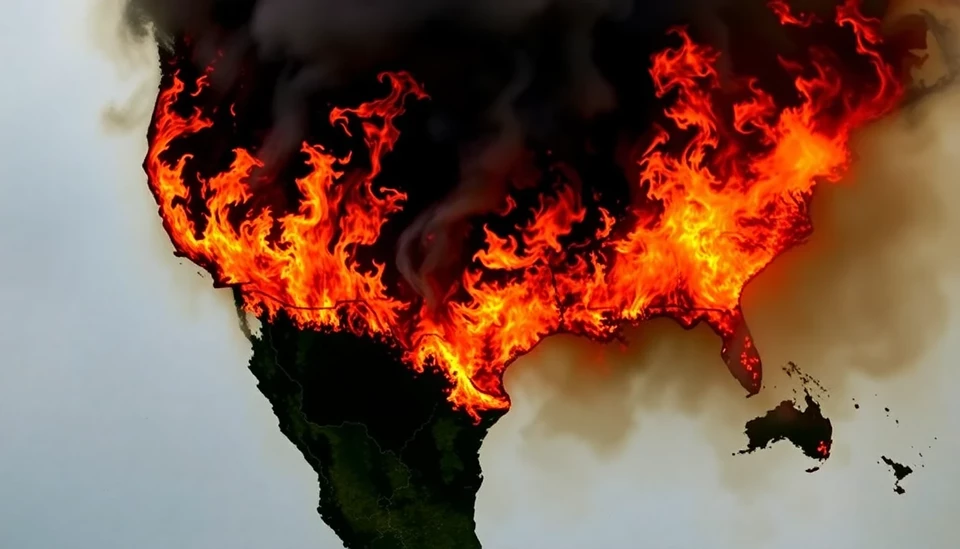
Recent findings reveal a drastic escalation in carbon emissions resulting from global forest fires, with an alarming increase of 60% over the past 20 years. This disturbing trend highlights the increasing frequency and intensity of wildfires around the world, driven by climate change, land use practices, and deforestation.
New research presented to the international scientific community shows that forest fires are now releasing approximately 2.5 billion tons of carbon per year. This figure underscores the significant role that such fires play in the current climate crisis, as they release huge amounts of carbon dioxide—one of the primary greenhouse gases contributing to global warming.
The past two decades have witnessed unprecedented changes in weather patterns, with hotter and drier conditions fostering an atmosphere ripe for wildfires. The report emphasizes that regions historically less prone to wildfires, like parts of Europe, are now experiencing an uptick in blaze incidents, further exacerbating the situation.
Moreover, deforestation exacerbates fire risks. As forests are cleared for agriculture and urban development, the remaining wooded areas are left vulnerable to fires. In many regions, land management practices often overlook fire prevention, contributing to the potential for larger and more disastrous infernos.
This alarming rise in emissions from forest fires is concerning not just for environmentalists but also for policymakers aiming to meet international climate targets. The increased carbon released from fires could counteract efforts to reduce overall greenhouse gas emissions. Experts warn that to tackle this issue effectively, both immediate action on fire management and broader climate change mitigation strategies are essential.
Furthermore, the economic impact of the growing intensity of wildfires cannot be understated. Countries facing these fires spend billions on firefighting efforts, restoration, and recovery, diverting funds from development projects and social services. This cycle of destruction and recovery puts additional strain on governments, particularly in developing nations that already grapple with economic challenges.
In light of these findings, researchers are calling for increased investment in fire management strategies, including controlled burns and better forest management techniques. There's a vital need for global cooperation in forest conservation and restoration efforts to mitigate the impact of fires, improve resilience against climate effects, and ultimately reduce the frequency of devastating forest fires.
As the world grapples with the pressing issue of climate change, the escalating rates of carbon emissions from forest fires present a significant hurdle. Scientists emphasize that strategic action must be taken not only to curb these emissions but also to address the underlying causes before the consequences become irreversible.
In conclusion, the evidence of a 60% rise in carbon emissions from forest fires over two decades serves as a stark reminder of the urgent action needed to protect our forests and the climate. Without immediate measures to manage and mitigate these fires, we risk enduring long-lasting impacts on our environment and climate stability.
#ClimateChange #ForestFires #CarbonEmissions #Wildfires #EnvironmentalImpact #GlobalWarming #ClimateCrisis
Author: Peter Collins




